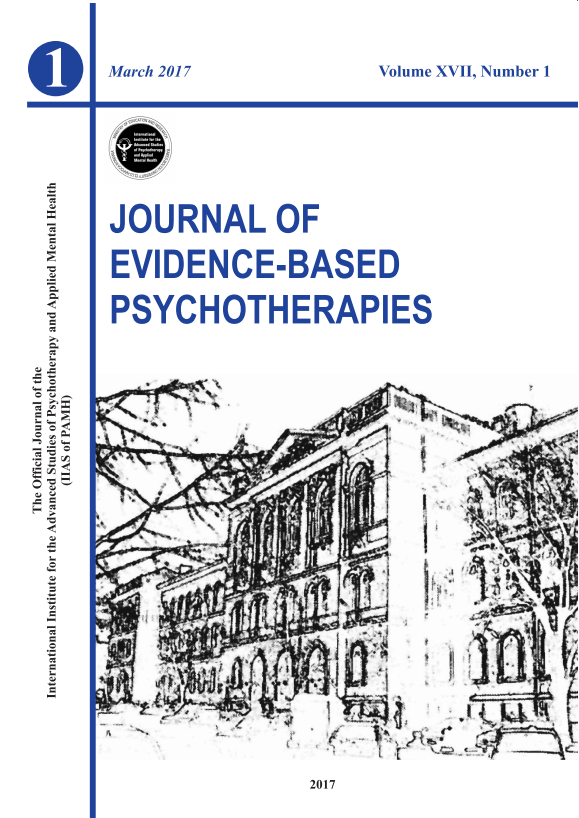Rational Emotive Behavior Theory 2
COGNITIVE-BEHAVIORAL HYPNOTHERAPY AUGMENTED WITH VIRTUAL REALITY EXPOSURE IN FLIGHT PHOBIA: A CASE STUDY
Viorel LUPU1, Silviu MATU2, Izabela Ramona LUPU3 violupu14@yahoo.com Abstract This paper presents a case study of a 40-year old patient suffering from flight anxiety, treated using a brief cognitive-behavioral intervention augmented by virtual reality exposure therapy and by hypnotherapy. The treatment was delivered in an outpatient setting in 6 weekly sessions. The main treatment approach […]
The role of irrational beliefs in the rational emotive behavior theory of depression
In the REBT theory of psychopathology major depression is associated with the endorsement of irrational beliefs. The present pilot study aims to extend the investigation of the major assumptions of the theory, by using a measure of IB (ABS2) that has good discriminant validity, allows the discrete evaluation of irrationality, rationality, demandingness, self-downing, frustration tolerance and awfulizing, and has been validated for the Romanian population. Subjects with major depression, subclinical dysphoria and controls were compared with regards to IBs. Results confirm that clinical depression is indeed accompanied by irrationality. Also, some IBs have been found to be associated with subclinical depressive symptoms.
Categories
- Vol XXIV, No.1, 2024, Special Issue (9)
- Vol XXIII, No.2, 2023 (9)
- Vol XXIII, No.1, 2023, Special Issue (8)
- Vol XXII. No.2, 2022 (9)
- Vol XXII, No.1, 2022 (9)
- Vol XXI, No. 2, 2021 (11)
- Vol XXI, No. 1, 2021 (8)
- Vol XX, No.2, 2020 (10)
- Vol XX, No.1, 2020 (8)
- Vol XIX, No.2, 2019 (9)
- Vol XIX, No.1, 2019 (9)
- Vol XVIII, No. 2, 2018 (10)
- Vol XVIII, No. 1, 2018 (10)
- Vol XVI, No. 2, 2016 (9)
- About (7)
- Vol XVII, No. 2, 2017 (10)
- Vol XVII, No. 1, 2017 (9)
- Vol XVI, No. 1, 2016 (9)
- Vol XV, No. 2, 2015 (9)
- Vol XV, No. 1, 2015 (12)
- Vol XIV, No. 2, 2014 (13)
- Vol XIV, No. 1, 2014 (7)
- Vol XIII, No. 2, 2013 (13)
- Vol XIII, Special Issue 2a, 2013 (11)
- Vol XIII, Special Issue 1a, 2013 (7)
- Vol XIII, No. 1, 2013 (8)
- Vol XII, No. 2, 2012 (8)
- Vol XII, No. 1, 2012 (9)
- Vol XI, No. 2, 2011 (11)
- Vol XI, No. 1, 2011 (8)
- Vol X, No. 1, 2010 (9)
- Vol IX, No. 2, 2009 (8)
- Vol IX, No. 1, 2009 (9)
- Vol VIII, No. 2, 2008 (11)
- Vol VIII, No. 1, 2008 (9)
- Vol VII, No. 2, 2007 (5)
- Vol VII, No. 1, 2007 (7)
- Vol VI, No. 2, 2006 (9)
- Vol VI, No. 1, 2006 (8)
- Vol V, No. 2, 2005 (7)
- Vol V, No. 1, 2005 (6)
- Vol IV, No. 2, 2004 (3)
